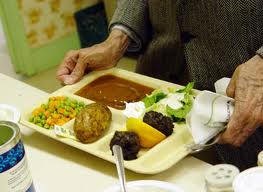As people age, their metabolism changes and they continue to use up fewer calories. In elderly people, the body seems to sense a decreased desire for calories and consequently people are likely to lose interest in food. Without having companionship throughout mealtime, little flexibility to go grocery shopping, dental problems that interfere with chewing, and drugs may also lead to disinterest in food.
This article will concerns to these changes, the specific nutritional requirements of seniors, and how special planning can help meet these needs.
Below are some recommendations from the Harvard Men’s Health Watch, geared toward older men, regarding how to stay in healthy eating habits as they age:
Staying active will preserve muscle, enabling you to burn more calories, boosting your metabolism, increasing your appetite, and upping your intake of essential nutrients.
A high utilization of dietary fiber can help fight diabetes, heart disease, diverticulosis, and hemorrhoids. Fruits, vegetables, whole grains, and high-fiber bran cereals are a good source of dietary fiber.
It’s important to maintain a daily intake of 400 micrograms of folic acid and 1.7 mg of vitamin B 6 if you are over the age of 50. These two vitamins help reduce blood levels of the amino acid homocysteine, now recognized as a risk factor for heart disease and stroke.
Additional tips include proper carbohydrate, water, protein, and mineral intake for seniors. So the most important thing is a balanced and varied diet that “makes it surprisingly easy to eat well.”

